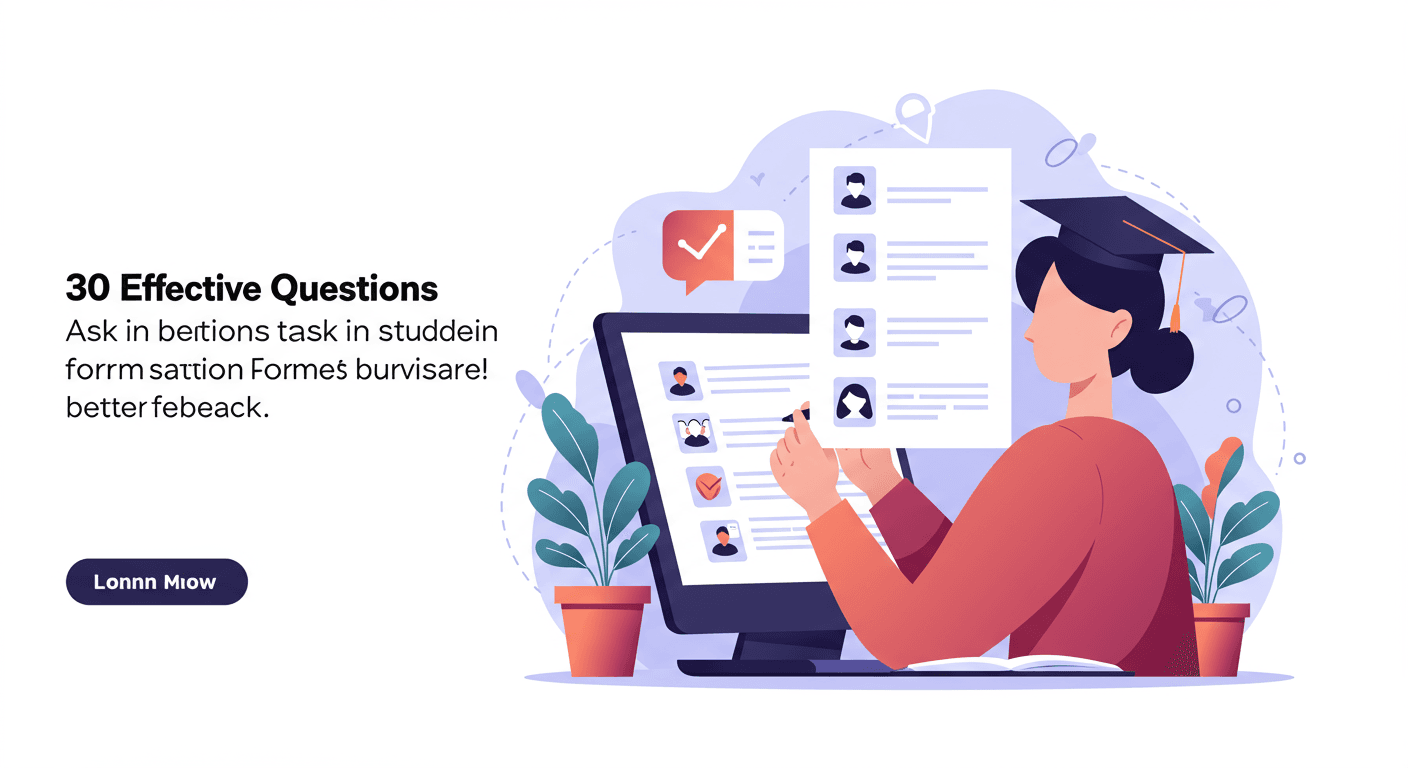The path to improvement often begins with understanding our own strengths and weaknesses. By recognizing areas where we can grow, we can strategically plan and achieve our goals. Self-evaluation, facilitated through thoughtful questioning, is a powerful tool for this journey.
While success is important for everyone, students often face unique pressures from parents and educators. Creating a supportive environment where students can honestly assess themselves is key. Instead of simply observing students, educators can leverage conversational surveys to gain deeper insights and provide tailored support.
What is a Self-Evaluation?
A self-evaluation is a tool that allows individuals to analyze their strengths and weaknesses, skills, capabilities, and future outlook. It's a chance to identify areas for improvement and build on existing talents.
In education, self-evaluations can be incorporated into surveys to gather valuable student feedback. A conversational surveys platform like BetterFeedback can help you create these surveys quickly and easily.
Why Use Self-Evaluations in Schools?
Schools prioritize student success. Self-evaluation fosters observation, which is a critical step toward achievement. It helps identify strengths, skills, and areas where students need support. By using a conversational surveys platform, you can streamline this process, provide targeted assistance, and prevent wasted time.
Self-evaluations also contribute to class engagement by giving teachers direct insight into student needs and requests.
Key benefits include:
- Highlighting areas for improvement.
- Contributing to student and family happiness through achievement.
- Building student confidence.
- Improving school effectiveness and reputation.
- Supporting future planning based on individual strengths.
Effective Self-Evaluation Questions for Students
Creating effective self-evaluation questions is essential. The best conversational surveys feel natural and engaging, not like a chore. To avoid boring students, questions should extend beyond academics and explore their broader experiences.
Divide your questions into three key areas:
- Academics
- Social Life
- Extracurricular Activities
Academics
Academic questions focus on the student's experience in school, classes, and exams. The goal is to understand their satisfaction, identify areas of difficulty, and uncover expectations.
- How do you feel you are progressing academically?
- What goals have you set for yourself in terms of grades or test scores?
- Are you happy with the progress you have made so far?
- What do you think could improve your academic performance?
- Do you feel like you are challenged enough in your classes?
- How do you feel about the workload in your classes?
- Do you think your teachers are fair and effective?
- Have you been able to get the help you need when you don't understand something?
- Do you feel like you are being supported by the school in your academic endeavors?
- What could the school do to better support your academic needs?
Social Life
Social life questions explore the student's personal experiences, focusing on personality traits. The aim is to understand their assertiveness, shyness, and self-confidence. This helps students become more aware of their social environment and interactions.
- How do you feel about your social life?
- Do you feel like you have enough friends?
- Do you feel like you are a part of any social groups or clubs?
- Do you feel like you are comfortable talking to new people?
- What do you like to do for fun?
- Are there any activities or events that you would like to see the school offer?
- Do you feel like your social life is interfering with your academic performance?
- How do you deal with stress and anxiety?
- What do you think the school could do to improve the social atmosphere on campus?
- Do you have any suggestions for ways to make the school a more welcoming and inclusive place for all students?
Extracurricular Activities
These questions explore how students spend their time outside of school. It's important to understand how these activities impact their development and whether they are developing their abilities.
- Are you involved in any activities outside your school?
- If so, what activities are you involved in?
- Do you feel like you have enough time to balance your academics and your extracurricular commitments?
- Do you feel like your extracurricular activities are helping you develop useful skills?
- What skills do you think you are developing through your involvement in extracurricular activities?
- Do you feel like your extracurricular commitments are interfering with your social life?
- What do you think the school could do to improve the extracurricular offerings?
- Are there any extracurricular activities that you would like to see the school offer?
- Do you have any suggestions for ways to make the school's extracurricular offerings more inclusive and accessible to all students?
- What do you think is the most valuable thing you have gained from your involvement in extracurricular activities?
Maximize Feedback with Conversational Surveys
Conversational surveys that feel like real dialogues—driven by AI agents that ask smart follow-up questions—can yield roughly 10x higher response quality and 3x higher completion rates compared to static questionnaires.
BetterFeedback enables you to:
- Launch goal-based surveys in about 60 seconds.
- Utilize AI question suggestions.
- Analyze summaries and sentiment instantly.
- Track responses in real-time.
- Distribute via link or embed a widget.
- Support 30+ languages automatically.
Start Improving Student Outcomes Today
Self-evaluations are valuable tools for understanding student progress and fostering communication between students and teachers. By leveraging a conversational surveys platform like BetterFeedback, you can create engaging experiences that provide deeper insights and drive positive outcomes.



